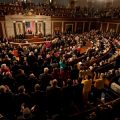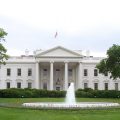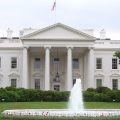America just wrapped up another presidential election, and in the wake of it a number of people are, once again, discussing the purpose of the Electoral College system. In recent times, many have asked whether it is time to start electing the President by popular vote only.
It’s an understandable question. In 2000, Al Gore won the national popular vote, but lost the election to George W. Bush thanks to the Electoral College, and this year President Obama’s 303 electoral votes looked like something of a landslide even though he barely squeaked by in virtually every battleground state. In Ohio, for instance, the President only received 50.1% of the vote, but that was all he needed to get all 18 of the state’s electoral votes. So with this in mind, would it be better for America to switch to a nationwide popular vote? The answer is no. Here’s why:
Mathematically Makes Arkansas More Significant
The number of electoral votes each states has are calculated by adding the number of congressmen the state has to its U.S. Senators. In Arkansas’ case, this comes out to 6 votes (4 congressmen + 2 senators).
Currently there are 538 electoral votes total throughout the nation. To win the presidency a candidate must receive at least 270 of them. So let’s do the math.
Arkansas’ 6 electoral votes represents 1.12% of all the votes on the table. This does not seem like much, but let’s consider this: There are currently a little over 146 million registered voters in the U.S. About 1.5 million of these voters live in Arkansas.
As a percentage of the national popular vote, Arkansas makes up exactly 1% of the electorate. That means 99% of America’s voters live some place other than Arkansas. When you consider where our nation’s population is concentrated—the coasts, with a few pockets scattered here and there across the South and Midwest—it’s reasonable to assume that while Arkansas isn’t an Electoral College juggernaut, without the Electoral College Arkansas really would not matter at all. Mathematically, the Electoral College makes Arkansas more important.
Arkansas Has Potential to Be a Battleground State
In the past few years a lot of attention in presidential campaigns has focused on states like Florida, Pennsylvania, Ohio, Iowa, and a few others. This year almost no advertising on the presidential race came to Arkansas. Why? Because Mitt Romney’s campaign and Barack Obama’s campaign both assumed Arkansas would vote Republican.
That turned out to be true. It has been true in the past few presidential races also. But Arkansas has not always gone Republican, and it will not always in the future, either. States change. When Arkansas’ 6 electoral votes appear even remotely questionable, presidential candidates will come to Arkansas to campaign. That’s a fact. Why? Because candidates want every electoral vote they can get.
Without the Electoral College system, Arkansas would never be a player in a presidential election. At best candidates might make a stop in Little Rock to stump a little on their way to Atlanta or Dallas, but that’s it.
With the Electoral College, Arkansas has the potential to become a battleground state—and probably will be some day. Without it, Arkansas never will be.
Makes Small States a Voting Bloc
States like Arkansas, Oklahoma, Kansas, Mississippi, and so on cannot match California or New York population-wise, but they all share similar values. Collectively, small states form a voting bloc that candidates must court. With the Electoral College, candidates will often make a series of stops throughout these states with smaller populations—even if they are not hotly contested battleground states. Without the Electoral College, there is little incentive to do so.
Keep the Electoral College
A few years ago Arkansas’ lawmakers considered legislation to award all 6 of our electoral votes to the presidential candidates who won the national popular vote. Effectively, this measure was an attempt to circumvent the Electoral College.
Now, there are a lot of problems with a measure like that, no matter how you feel about the Electoral College system. It disenfranchises voters, for starters. Had it passed, Arkansas’ electoral votes would have gone to Barack Obama in the most recent election—even though Arkansans voted overwhelmingly for Mitt Romney.
That proposal aside, however, any attempt to change or circumvent the Electoral College is going to weaken Arkansas’ influence in a presidential election. It will shift the balance of power overwhelmingly to populated areas. If that happens, presidential campaigns will focus on those regions to the exclusion of places like Arkansas, and presidential policies will also as a result.
The Electoral College gives Arkansas a voice in each election. It may feel small at times, but it really isn’t, and without the Electoral College Arkansas’ voice would be virtually nonexistent.



